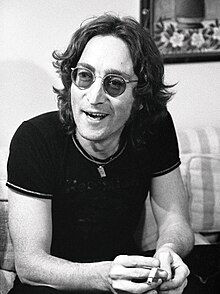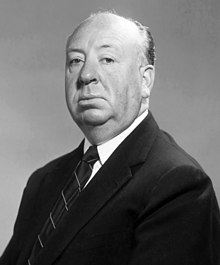Portal:1960s
The 1960s Portal
The 1960s became synonymous with the new, radical, and subversive events and trends of the period. In Africa the 1960s was a period of radical political change as 32 countries gained independence from their European colonial rulers. Some commentators have seen in this era a classical Jungian nightmare cycle, where a rigid culture, unable to contain the demands for greater individual freedom, broke free of the social constraints of the previous age through extreme deviation from the norm. Christopher Booker charts the rise, success, fall/nightmare and explosion in the London scene of the 1960s. However, this alone does not explain the mass nature of the phenomenon. Several nations such as the U.S., France, Germany and Britain turned to the left in the early and mid 1960s. In the United States, John F. Kennedy, a Keynesian and staunch anti-communist, pushed for social reforms. His assassination in 1963 was a stunning shock. Liberal reforms were finally passed under Lyndon B. Johnson including civil rights for African Americans and healthcare for the elderly and the poor. Despite his large-scale Great Society programs, Johnson was increasingly reviled by the New Left at home and abroad. The heavy-handed American role in the Vietnam War outraged student protestors across the globe, as they found peasant rebellion typified by Ho Chi Minh and Che Guevara more appealing. Italy formed its first left-of-center government in March 1962 with a coalition of Christian Democrats, Social Democrats, and moderate Republicans. Socialists joined the ruling block in December 1963. In Britain, the Labour Party gained power in 1964. In Brazil, João Goulart became president after Jânio Quadros resigned. This is a Featured article, which represents some of the best content on English Wikipedia..
The 1966 New York City smog was a major air-pollution episode and environmental disaster, coinciding with that year's Thanksgiving holiday weekend. Smog covered the city and its surrounding area from November 23 to 26, filling the city's air with damaging levels of several toxic pollutants. It was the third major smog in New York City, following events of similar scale in 1953 and 1963. On November 23, a large mass of stagnant air over the East Coast trapped pollutants in the city's air. For three days, New York City was engulfed in dangerously high levels of carbon monoxide, sulfur dioxide, smoke, and haze. Pockets of air pollution pervaded the greater New York metropolitan area, including parts of New Jersey and Connecticut. By November 25, the smog became severe enough that regional leaders announced a "first-stage alert". During the alert, leaders of local and state governments asked residents and industry to take voluntary steps to minimize emissions. Health officials advised people with respiratory or heart conditions to remain indoors. The city shut off garbage incinerators, requiring massive hauling of garbage to landfills. A cold front dispersed the smog on November 26, and the alert ended. (Full article...)This is a Good article, an article that meets a core set of high editorial standards.
Tommy is the fourth studio album by the English rock band the Who, first released on 19 May 1969. Written primarily by guitarist Pete Townshend, Tommy is a double album and an early rock opera that tells the story of the fictional Tommy Walker and his path to becoming a spiritual leader and messianic figure. Townshend came up with the concept of Tommy after being introduced to the work of Meher Baba, and he attempted to translate Baba's teachings into music. Recording of the album began in September 1968, but took six months to complete as material needed to be arranged and re-recorded in the studio. The Who promoted the album's release with an extensive tour, including a live version of Tommy, which lasted throughout 1969 and 1970. Key gigs from the tour included appearances at Woodstock, the 1969 Isle of Wight Festival, the University of Leeds, the Metropolitan Opera House, and the 1970 Isle of Wight Festival. The live performances of Tommy drew critical praise and revitalised the band's career. (Full article...)Selected picture - Crowds surrounding the Reflecting Pool, during the August 28 1963 March on Washington for Jobs and Freedom. An estimated 200,000 to 500,000 people participated in the march, which featured Martin Luther King Jr.'s famous "I Have a Dream" speech. It was a major factor leading to the passage of the Civil Rights Act of 1964 and the 1965 Voting Rights Act. The march was also condemned by the Nation of Islam and Malcolm X, who termed it the "farce on Washington".
Did you know -
Related portalsThis is a Featured article, which represents some of the best content on English Wikipedia..
John Winston Ono Lennon (born John Winston Lennon; 9 October 1940 – 8 December 1980) was an English singer, songwriter and musician. He gained worldwide fame as the founder, co-lead vocalist and rhythm guitarist of the Beatles. His work included music, writing, drawings and film. His songwriting partnership with Paul McCartney remains the most successful in history as the primary songwriters in the Beatles. Born in Liverpool, Lennon became involved in the skiffle craze as a teenager. In 1956, he formed the Quarrymen, which evolved into the Beatles in 1960. Sometimes called "the smart Beatle", Lennon initially was the group's de facto leader, a role he gradually seemed to cede to McCartney. Through his songwriting in the Beatles, he embraced myriad musical influences, initially writing and co-writing rock and pop-oriented hit songs in the band's early years, then later incorporating experimental elements into his compositions in the latter half of the Beatles' career as his songs became known for their increasing innovation. Lennon soon expanded his work into other media by participating in numerous films, including How I Won the War, and authoring In His Own Write and A Spaniard in the Works, both collections of nonsense writings and line drawings. Starting with "All You Need Is Love", his songs were adopted as anthems by the anti-war movement and the larger counterculture of the 1960s. In 1969, he started the Plastic Ono Band with his second wife, multimedia artist Yoko Ono, held the two-week-long anti-war demonstration Bed-ins for Peace and left the Beatles to embark on a solo career. (Full article...)This is a Good article, an article that meets a core set of high editorial standards.
Sir Alfred Joseph Hitchcock KBE (13 August 1899 – 29 April 1980) was an English film director. He is widely regarded as one of the most influential figures in the history of cinema. In a career spanning six decades, he directed over 50 feature films, many of which are still widely watched and studied today. Known as the "Master of Suspense", Hitchcock became as well known as any of his actors thanks to his many interviews, his cameo appearances in most of his films, and his hosting and producing the television anthology Alfred Hitchcock Presents (1955–65). His films garnered 46 Academy Award nominations, including six wins, although he never won the award for Best Director, despite five nominations. Hitchcock initially trained as a technical clerk and copywriter before entering the film industry in 1919 as a title card designer. His directorial debut was the British-German silent film The Pleasure Garden (1925). His first successful film, The Lodger: A Story of the London Fog (1927), helped to shape the thriller genre, and Blackmail (1929) was the first British "talkie". His thrillers The 39 Steps (1935) and The Lady Vanishes (1938) are ranked among the greatest British films of the 20th century. By 1939, he had international recognition and producer David O. Selznick persuaded him to move to Hollywood. A string of successful films followed, including Rebecca (1940), Foreign Correspondent (1940), Suspicion (1941), Shadow of a Doubt (1943) and Notorious (1946). Rebecca won the Academy Award for Best Picture, with Hitchcock nominated as Best Director. He also received Oscar nominations for Lifeboat (1944), Spellbound (1945), Rear Window (1954) and Psycho (1960). (Full article...)Selected article -Grateful Dead was an American rock band formed in 1965 in Palo Alto, California. The Grateful Dead is known for its eclectic style, which fused elements of rock, blues, jazz, folk, country, bluegrass, rock and roll, gospel, reggae, and world music with psychedelia. The band is famous for their improvisation during their live performances, and have attracted a devoted fan base, known as "Deadheads". According to the musician and writer Lenny Kaye, the music of the Grateful Dead "touches on ground that most other groups don't even know exists." For the range of their influences and the structure of their live performances, Grateful Dead are considered "the pioneering godfathers of the jam band world". Grateful Dead was founded in the San Francisco Bay Area during the rise of the counterculture of the 1960s. The band's founding members were Jerry Garcia (lead guitar and vocals), Bob Weir (rhythm guitar and vocals), Ron "Pigpen" McKernan (keyboards, harmonica, and vocals), Phil Lesh (bass guitar and vocals), and Bill Kreutzmann (drums). Members of Grateful Dead, originally known as the Warlocks, had played together in various Bay Area ensembles, including the traditional jug band Mother McCree's Uptown Jug Champions. Lesh was the last member to join the Warlocks before they changed their name to Grateful Dead, replacing Dana Morgan Jr., who had played bass for a few gigs. Drummer Mickey Hart and non-performing lyricist Robert Hunter joined in 1967. With the exception of McKernan, who died in 1973, and Hart, who took time off from 1971 to 1974, the core of the band stayed together for its entire 30-year history. Other official members of the band included Tom Constanten (keyboards from 1968 to 1970), John Perry Barlow (non-performing lyricist from 1971 to 1995), Keith Godchaux (keyboards and occasional vocals from 1971 to 1979), Donna Godchaux (vocals from 1972 to 1979), Brent Mydland (keyboards and vocals from 1979 to 1990), and Vince Welnick (keyboards and vocals from 1990 to 1995). Bruce Hornsby (accordion, piano, vocals) was a touring member from 1990 to 1992, as well as a guest with the band on occasion before and after the tours. (Full article...)More Did you know (auto generated)
TopicsCategoriesWikiProjects
Associated WikimediaThe following Wikimedia Foundation sister projects provide more on this subject:
Discover Wikipedia using portals |





























